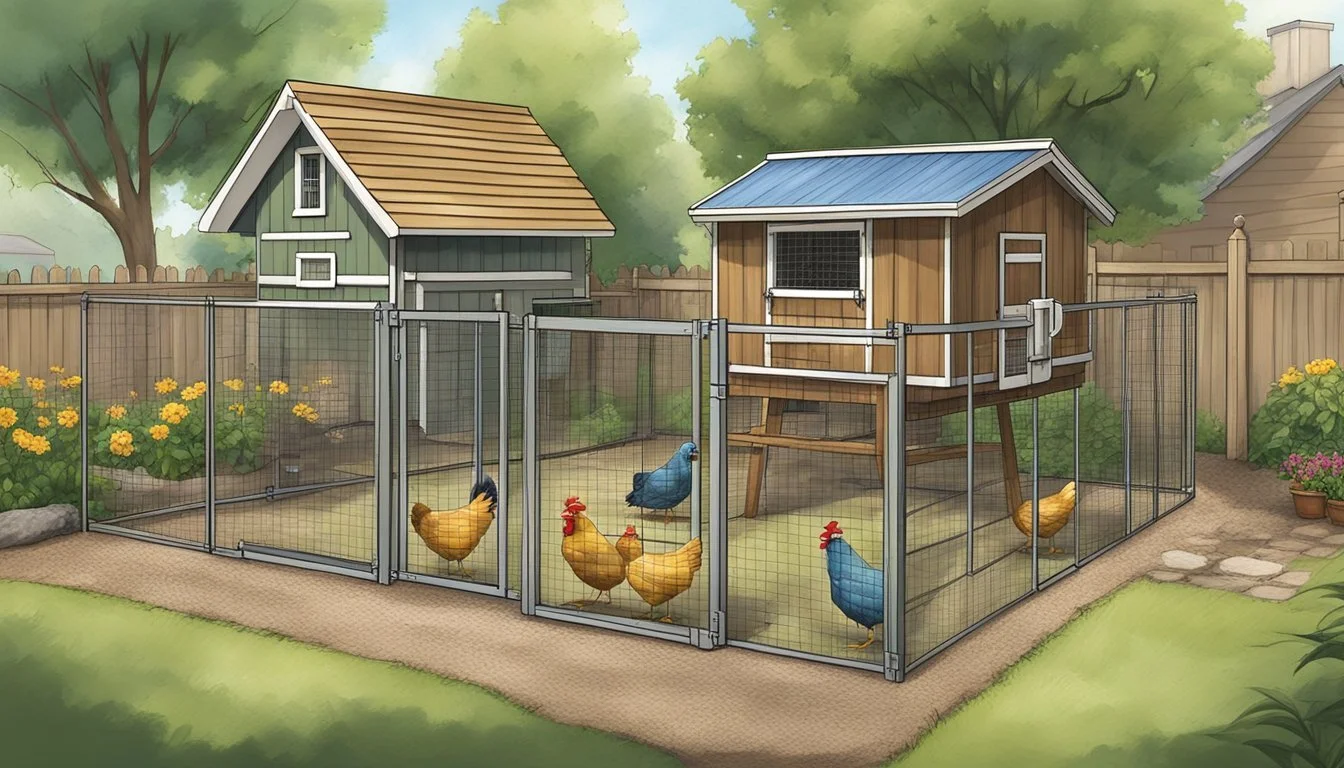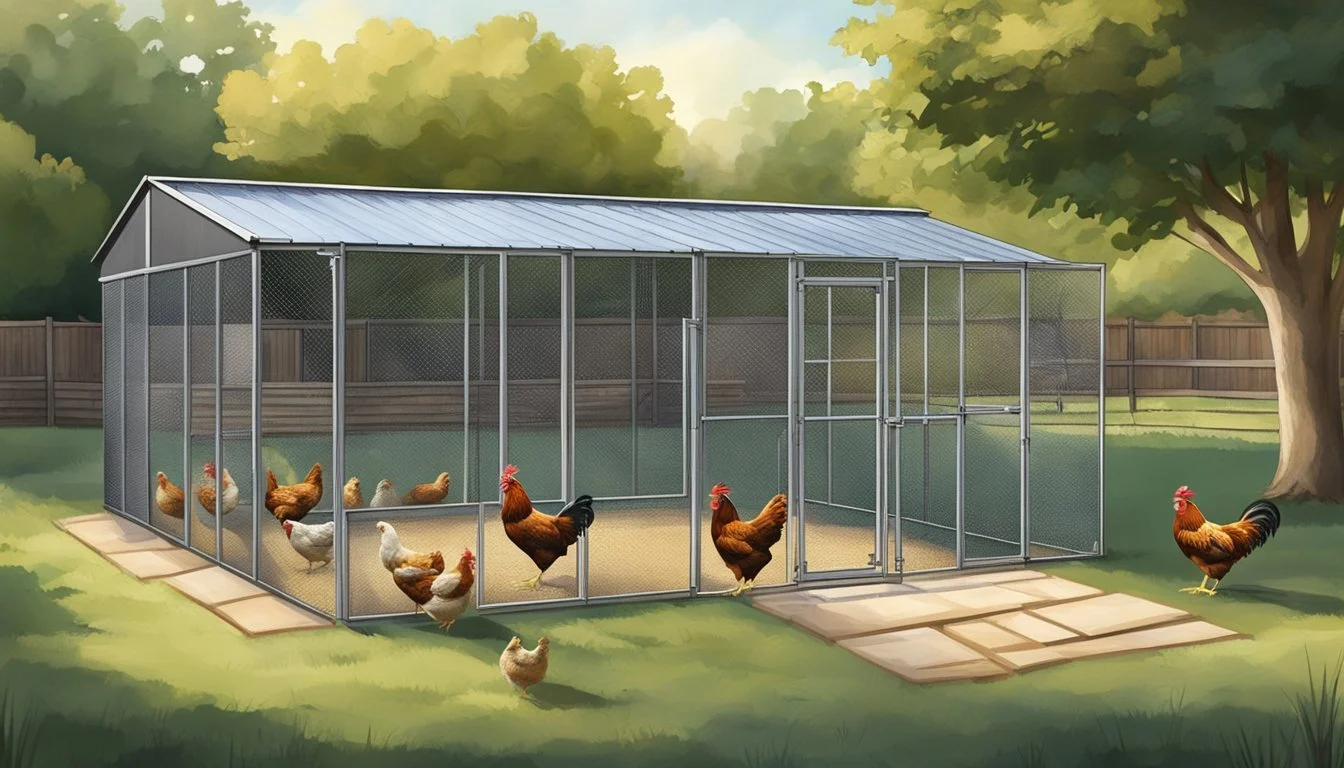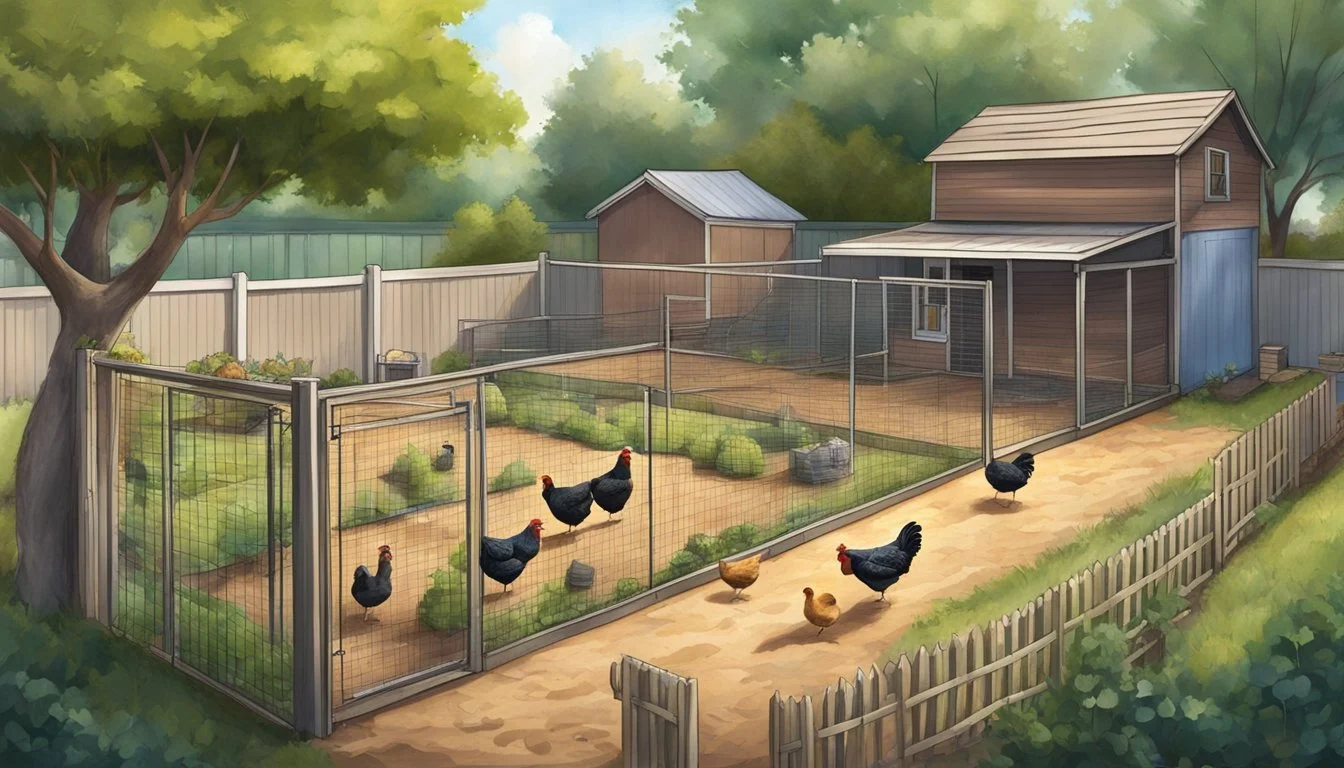Keeping Backyard Chickens in Norman, OK
Essential Guidelines for Residents
Keeping backyard chickens has become an increasingly popular pastime in Norman, Oklahoma, allowing residents to enjoy fresh eggs, natural pest control, and the simple joys of animal husbandry. The city has established specific guidelines to manage and regulate the keeping of chickens within its boundaries. These regulations are crafted to ensure the welfare of the chickens, preserve neighborhood harmony, and address public health concerns.
In Norman, individuals interested in maintaining backyard chickens are required to abide by the city's zoning ordinances. These rules permit the keeping of domesticated farm animals, such as chickens, within all zoning districts, provided certain conditions are met. For instance, there are stipulations regarding the placement of coops and the allowable distance from neighboring dwellings, which are designed to minimize any potential nuisances to nearby residents.
The City of Norman requires that coops be located in rear or backyard areas, maintaining a minimum distance from side or rear property lines and a specific setback from any dwelling units other than the owner's. Compliance with these requirements is necessary for residents to partake in the benefits of urban chicken keeping while adhering to city regulations and respecting the rights of their neighbors.
Understanding Local Regulations
In Norman, Oklahoma, individuals interested in raising chickens must adhere to specific local ordinances and zoning rules. Knowledge of these regulations ensures compliance and a harmonious community living experience.
Norman's Zoning Districts and Chicken Ordinances
Norman designates areas where chicken-keeping is permissible, mainly within the R-1 zoning district. It specifies that a resident may keep up to four chickens or laying hens, but roosters are not allowed. These ordinances are part of the city's effort to control noise and maintain public health.
Permit Requirements for Raising Chickens
Before setting up a backyard coop, residents must acquaint themselves with the permit requirements. The City of Norman may have specific applications or notifications that must be filled to legally keep chickens within city limits.
Requirement Description Permit Application Necessary for backyard chicken keeping City Council Approval May be required for certain exceptions
Property Line and Setback Considerations
Local ordinances in Norman include setback requirements that stipulate the distance chicken coops must maintain from property lines. These restrictions are in place to help prevent disputes between neighbors and to ensure each parcel maintains a standard of cleanliness and order.
Property Line Distance: A specified minimum from neighbor's yard.
Setback Conditions: Additional distance could allow for more than four hens.
Residents must consult Chapter 22 of the local ordinances or the city’s official documentation to understand the exact measurements and conditions that apply to their property.
Setting Up Your Chicken Coop
Creating an ideal chicken coop in Norman, OK involves careful planning to ensure the welfare of the chickens and compliance with local ordinances. The coop must be designed for easy maintenance, protection from predators, and proper location to mitigate any disruptions.
Selecting a Suitable Location
The location of a chicken coop should comply with Norman's regulations, requiring it to be positioned at least 5 feet from property lines and 25 feet from any dwelling unit other than the owner's. It is essential to choose a level area that provides adequate drainage to prevent water pooling and promotes healthy living conditions for the chickens.
Coop Design and Size Guidelines
A practical chicken coop design includes necessary features such as ventilation, insulation, and laying areas. Norman guidelines dictate the coop to be located in the R-1 zoning district for raising chickens. The minimum size depends on the number of chickens, with general recommendations suggesting at least 2-3 square feet per chicken inside the coop and 8-10 square feet in an outside run.
Security Against Predators
Norman is home to various predators that can harm chickens, so a predator-resistant coop is a must. It should have secure latches to prevent raccoons and other nimble creatures from gaining access. All windows and vents must be covered with suitable barriers like heavy-duty wire mesh to keep the chickens safe.
Maintaining Sanitation and Preventing Odors
Regular cleaning is imperative to maintain sanitation and control odors in and around a chicken coop. Bedding should be changed frequently, and droppings should be removed promptly. Proper design for ease of cleaning and ventilation can help minimize smells, ensuring a hygienic environment for both the chickens and the neighboring community.
Chicken Care Essentials
To ensure the well-being of backyard chickens in Norman, OK, owners must establish a consistent care routine, pay attention to the birds' health, and be vigilant for any signs of distress.
Proper Feeding and Watering Routines
Chickens require a balanced diet to lay fresh eggs and maintain good health. Owners should provide:
Layer feed: A mix rich in calcium and proteins.
Grit: To aid in digestion.
Supplements: Occasional treats like vegetables or mealworms.
Clean water: Accessible at all times to prevent dehydration.
Health Management and Veterinary Needs
Regular health checks and preventive measures are crucial. Owners should:
Vaccinate: Protect against common poultry diseases.
Parasite control: Regular treatments for lice and mites.
Veterinary care: Access to a vet who specializes in livestock or poultry health.
Daily Observations for Signs of Distress
Observing chickens daily allows for early detection of potential issues. Look for:
Behavior changes: Lethargy, aggression, or reduced appetite.
Physical symptoms: Changes in comb color, irregular egg production, or respiratory issues.
Compliance and Considerations in Backyard Chicken Keeping
Keeping backyard chickens in Norman, OK requires adherence to specific municipal codes and a proactive approach to managing community relationships. Residents must navigate a set of local laws that regulate housing, noise, and other potential nuisances.
Managing Relationships with Neighbors
One of the primary considerations for backyard chicken keepers is maintaining a positive relationship with neighbors. To prevent disruptions, it's essential to control offensive odors and noise, which could otherwise lead to complaints to animal control. Regular cleaning of coops and proper waste disposal are effective ways to manage odors. Noise concerns are largely associated with roosters, which are not permitted in residential areas.
Understanding Slaughtering Restrictions
Slaughtering of chickens is another sensitive issue. In Norman, specific ordinances may govern the slaughter of backyard chickens. It typically must be conducted out of view of neighborhood homes and in a manner that is respectful to neighbors and in compliance with public health regulations.
Adjusting to Changes in Local Chicken Laws
Local chicken laws can evolve, and residents must be prepared to adapt to changes. It may become necessary to engage with local government bodies regarding ordinance amendment if the community's needs change. Staying informed about local chicken laws and actively participating in community discussions can provide opportunities for residents to influence future regulations.
Legal Aspects and Future Projections
In the city of Norman, Oklahoma, the keeping of backyard chickens is regulated by specific laws and ordinances. Residents interested in urban chicken farming must navigate these regulations, while also staying informed about potential policy changes that may affect their investment in this practice.
Evolving Norms in Urban Chicken Farming
Norman, OK, currently permits its residents to keep chickens in their backyards under defined conditions. An individual can keep a maximum of four chickens per residential parcel zoned R-1. However, roosters are prohibited to prevent noise disturbances. The local government mandates that chicken enclosures be situated at least 25 feet from any property lines and 100 feet from any dwelling other than the owner's. These strict regulations are in place to balance urban development with residents' desire to engage in small-scale agriculture.
Anticipating Changes in Local Government Policies
Stakeholders in Norman have shown interest in adjusting the chicken ordinances to reflect a growing trend in urban farming. Individuals may need to monitor local government meetings and announcements to stay informed about potential changes. Proposed alterations could impact the permitted number of chickens, enclosure restrictions, or the investment necessary to legally keep chickens within city limits. It's anticipated that local government policies may evolve to become more accommodating for urban chicken enthusiasts, provided community interest continues to advocate for more lenient laws and regulations.
Additional Considerations for Backyard Chicken Owners
When considering backyard chickens in Norman, OK, one must carefully select the appropriate breed, understand the lifecycle from chick to adult, and properly manage egg production to comply with local ordinances and ensure the well-being of the chickens.
Choosing the Right Breed of Chicken
Experts typically advise on selecting a breed of chicken that matches the owner's goals whether it be for egg production, temperament, or adaptability to the Norman climate. They should also consider that Norman's ordinance does not permit roosters in residential areas, and thus should focus on hens, specifically for single-family residences where the upkeep of chickens is allowed.
Lifecycle Management from Chicks to Adults
Understanding and managing the lifecycle of chickens is crucial for their proper development. Pullets, which are young hens, should be provided with a warm environment when they are chicks and gradually introduced to the outside coop. They mature into adults at around six months of age, at which point they require complete coops with nesting boxes and roosts to ensure their safety and comfort.
Egg Production and Care of Laying Hens
A critical aspect of raising chickens is the care of laying hens to ensure consistent egg production. Residents are often allowed a limited number of chickens, usually up to four hens per household. The hens will need well-maintained nesting boxes for egg laying and a tranquil environment to avoid stress, which can affect their laying patterns. Regular cleaning of the coop and nesting boxes will help to keep the hens healthy and productive.







